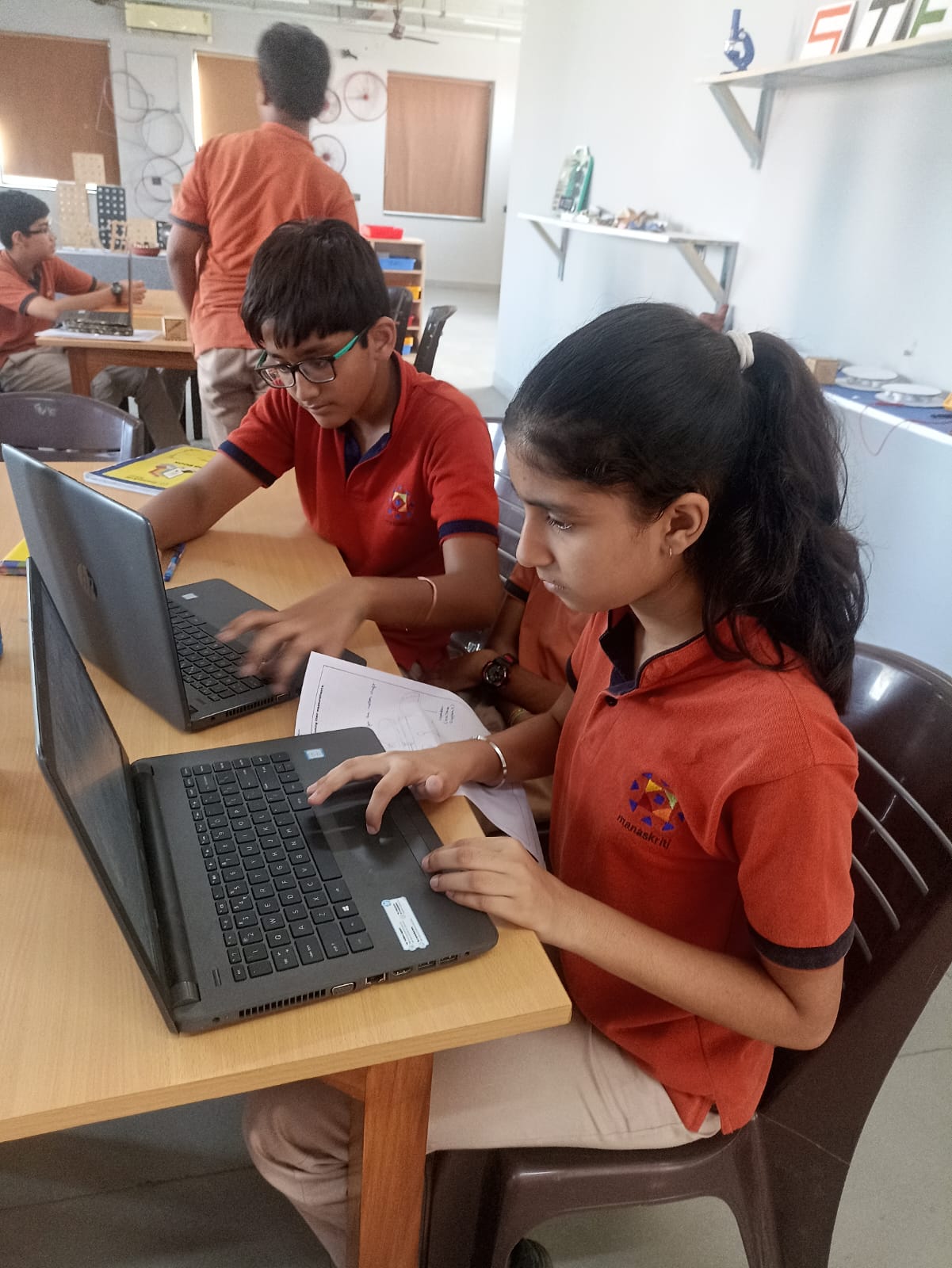
Hi, I am Aarna Kapil, a student of Manaskriti School in grade 8 Ambar. We have recently been working on an amazing project in our Maker's Lab.We Manaskriti Minds have been focusing on developing our country by helping these small sellers sell their products easily online by displaying it attractively and more effectively. Our honourable Prime Minister launched Aatmanirbhar Bharat in which he is supporting small vendors but recently they have been facing a lot of competition from online sellers. The problem they face is improper display of products online .So to end this problem we have created a cheap,effective solution for them: The Photobooth 360 Project. We have used vast technologies to create a vision for these small vendors. In this project, the sellers can sell their products through a 360 booth which rotates.It ends the problem of these small vendors. The viewer can see every side, every angle of the product and then decide if they want to buy it or not. It helps the vendors by displaying it online in a better way. We have used the following apps in this project :
While making this project, we realized that it is not that easy as we expected it to be. We had a lot of ups and downs.
Overall, this journey was not at all easy but it was worth it. It increased my knowledge a lot.